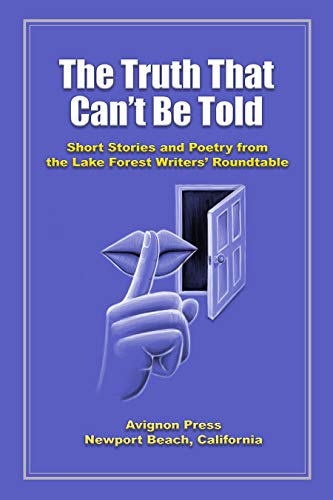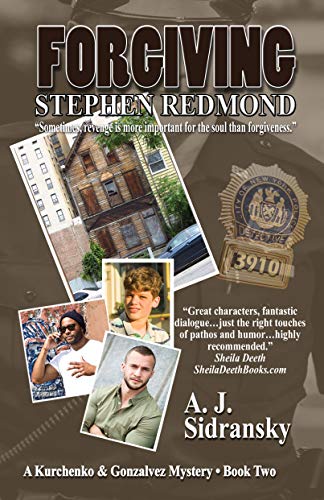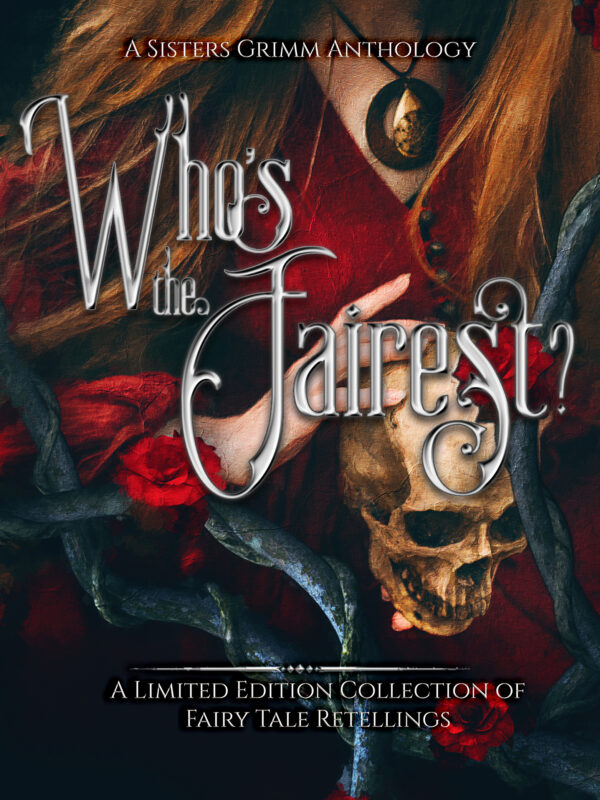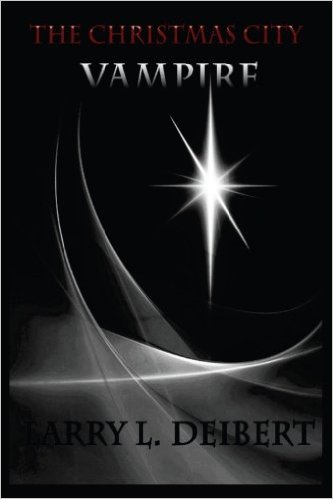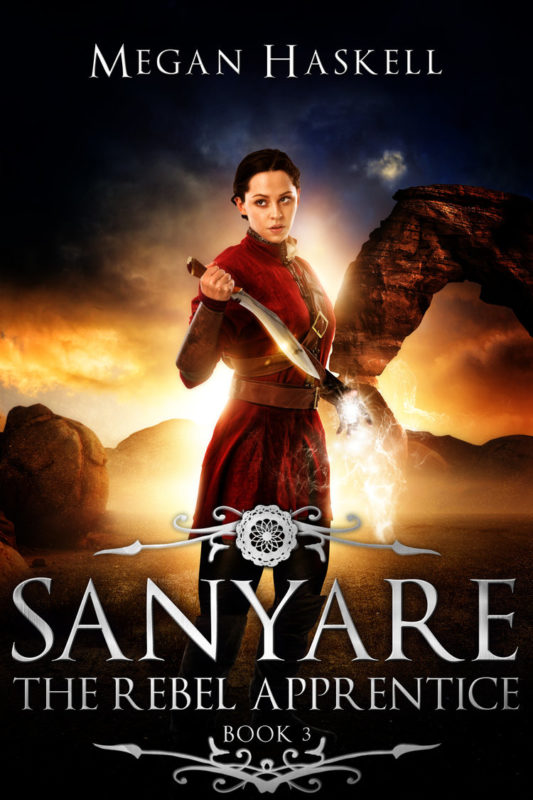February Featured Authors: The Extra Squeeze Team
February 1, 2021 by The Extra Squeeze in category Featured Author of the Month, The Extra Squeeze by The Extra Squeeze Team tagged as February Featured Authors, HO Charles, Jenny Jensen, Rebecca Forster., Robin Blakely, The Extra Squeeze, The F bomb, writing
Each week in February we’ll be featuring The Extra Squeeze Team.
Ever wonder what industry professionals think about the issues that can really impact our careers? Each month The Extra Squeeze features a fresh topic related to books and publishing.
Amazon mover and shaker Rebecca Forster and her handpicked team of book professionals offer frank responses from the POV of each of their specialties — Writing, Editing, PR/Biz Development, and Cover Design.
Have you a question for The Extra Squeeze Team? Send them to us by using this handy link.

From The Extra Squeeze Archives
Is the F word a bomb?
We’ve read books with it all over the place and yet notice that readers object to it.
Does anyone really like using it?
Would another word do?
When is it necessary?

Rebecca Forster
USA Today Bestselling author of 35 books, including the Witness series and the new Finn O’Brien series.
Is the F word a bomb?
What kind of fucking question is that?
What kind of friggin’ question is that?
What kind of question is that?
Actually, this is a great question and one I am happy to weigh in on because the use of the F-word had an impact it had on my career.
I began my career as a romance writer (I was fired from this gig because I kept killing characters before they fell in love. My editor suggested a genre change.) I never used the F-word when I wrote romance. When I moved to contemporary women’s fiction I used it sparingly in these longer, more intricately plotted books (the word was only uttered by bad guys).
When I upped the ante and moved into a male dominated genre – legal thrillers – everything changed. Writing became tighter, characters multi-faceted, plots ‘torn from the headlines’ were much grittier. In my writing the F-bomb was spoken by hard charging attorneys and socially marginalized criminals alike to underscore their tenacity for fighting for justice in the former instance or illustrate disdain for the system in the latter.
Hostile Witness* was the first book where I really let loose. Lots of male thriller writers used the word, why not me? My editor at Penguin/Putnam had no problem with it and approved the book. When the Hostile Witness was traditionally published, I received no letters of complaint.
Then came the Internet. I republished the first three books of the Witness Series* and readers started posting reviews as easily as they clicked their Kindle. I remember the first bad review I received because of my use of the F word. It said, “The language in this book is vile. I will never read this author again.”
That stopped me cold, so I went back to the files and searched how many times I had used the F-word. I was shocked and embarrassed by what I found. In my quest to establish myself as a hard-edged thriller writer, I had gone overboard. Using profanity to the degree I had took the reader out of the story at best and offended them at worst. I asked myself, was there a better way to write a scene? A better way to inform a character? Had I been a lazy author and fallen back on a word rather than my skill to get a point across?
The answer to all these questions was yes. Now I use the word friggin’ or cut the word off at Fu — and let the reader’s mind fill in the blank. Bottom line, I took the review to heart, objectively looked at my work and made an informed decision before I re-edited the book. Did I lose anything by banning the F-word?
(F-word deleted) no.
*Hostile Witness is Free to readers.
**Sign up for my mailing list and get Hostile Witness and the Spotlight Novella, Hannah’s Diary, Free.

Jenny Jensen
Developmental editor who has worked for twenty plus years with new and established authors of both fiction and non-fiction, traditional and indie.
The Urban Dictionary defines ‘F-bomb’ as “the strongest weapon in one’s verbal arsenal” (a bit extreme, but it makes the point). Is it necessary to use in fiction? No, not necessary, but sometimes appropriate. The plot, the scene, the character, the action, the tone can all come together to make the F-word the only adjective or expletive that works. In that case, it should be a shocker – a strong, realistic part of the narrative rhythm. The word should be chosen with consideration and, by all the writing gods, don’t overuse it. Repetition strips the word of any value; it just becomes distasteful, silly and embarrassingly adolescent.
It wasn’t long ago a writer would never consider using the word, nor would a publisher let them, although the F word was understood to have the strength of a bomb.
from The Maltese Falcon (Dashiell Hammett, 1930)
The boy spoke two words, the first a short guttural verb, the second ”you”.
“People lose teeth talking like that.” Spade’s voice was still amiable though his face had become wooden.
Great, right!? There are so many options for word smithing around the F-word but that requires thought and skill. Too many authors take the easy way out and use it as verb, adjective and noun. That’s just lazy or the mark of a poor writer.
I recently ran across this Amazon review:
I gave it 5 stars, because the writing, the sense of humor the detective has, and the story! All great! In fact, you are such a good writer, you don’t need to use the “F” word as much as you do! Your characters are great without it!
Such a good writer…you don’t need to use… the reviewer said. That’s exactly what I mean.

Well, a bomb is something designed to explode on impact, so I guess if you want to f-bomb effectively, it needs to be unexpected! In that case, it’ll only detonate properly in the most delicate, sweetest and appeasing of godly novels! But, of course, readers don’t always like to be shocked so hard that they fall off their chairs, and using language that is not in-keeping with the story will only make it jar, in my opinion. As writers, we aim to torture and make our readers emotional from time to time, but there’s intent and then there’s intent.
I don’t mind using swear words – their offensiveness changes over time, and the F-bomb (being polite for you all here), is hardly the most offensive word or phrase out there at the moment. In some novels it’s absolutely appropriate to include swearing, and the target readership will reflect that. I do think over-reliance on a single swear word is a negative thing though. There are so many varied ways of swearing, and it’s up to the author to come up with setting- or character-appropriate vocabulary. In my fantasy novels, I frequently use ‘follocks!‘ (an obvious portmanteau of f**k and boll**ks), because it conveys the emotion I want, but also carries humour and sets the imaginary world apart from this one.
What do you think of using the F-word in fiction? Let us know in the comments.
Dear Extra Squeeze, Do You Have Audio Book Tips?
January 31, 2021 by The Extra Squeeze in category The Extra Squeeze by The Extra Squeeze Team, Writing tagged as audio books, H.O. Charles, Jenny Jensen, Rebecca Forster., Robin Blakely, The Extra Squeeze Team
Dear Extra Squeeze Team, I am interested in audio books, but I do not know how to get started in that arena…what are your tips?
Robin Blakely
PR/Business Development coach for writers and artists; CEO, Creative Center of America; member, Forbes Coaches Council.
The most important thing is to evaluate and prepare to articulate what you want. Listen to audio books in the genre of your work. Find the best ones that resonate with you. Note who the voice talent is and what you like about their performances. Then, step back and listen to the best audio books in other genres. Sometimes there is a huge difference between what is good in one genre and what is good in another genre. Noticing what you like and don’t like becomes more apparent through comparisons. Researching what you like and why will strengthen your vision for the end product. If you know what you really want and can express it, you will be able to find the talent you want in the audio arena.

Jenny Jensen
Developmental editor who has worked for twenty plus years with new and established authors of both fiction and non-fiction, traditional and indie.
Not sure how much help I can offer as I know nothing about distributing audio books, but I can say that the place to begin is with the voice talent. I used to produce radio spots and one had to keep a book of voice talent and jump through audition hoops to find the voice that best fit the ad’s product and audience. It’s so much easier today.
There are hundreds of really fine voice actors on the internet and most of them have the equipment needed at their fingertips. The actor’s websites have links to examples of their work so all you have to do is listen and consider if that voice has the right intonation, quality, clarity and personality to be a good narrator for your particular story. That’s a pretty subjective decision, so no tips on that.
I do suggest, however, that you test enough of the actor’s handling of dialog to know if it will work. Do you like the way she handles a man’s voice? How does he handle female voices? Children? Old people? Surprise, Anger? Most actors, once contacted, will audition a passage from your work. Then be aware of how the actor handles the issue of rights.

Rebecca Forster
USA Today Bestselling author of 35 books, including the Witness series and the new Finn O’Brien series.
I’m the wrong person to ask about audio books. I am not an ‘audio’ reader and I proved it when a producer bought my series. I was asked to choose a narrator, and I did not choose well. I will eagerly read my colleagues suggestions and we’ll learn together.
H.O. Charles
Cover designer and author of the fantasy series, The Fireblade Array
I’ve yet to record mine, despite years of working on radio programs and in audio production! From a production perspective, you need a room with dampened sound (soft furnishings to absorb echo–think of a studio with egg cartons and foam on the walls). You need a good microphone and a lot of disk space. There’s probably a way of recording using a mobile phone, these days (I’m a bit out of date!), as their microphones are improving all the time.
Avoid mic pops – this is where your Ps and Bs thump the mic as you spit at it. Make your editing easier by enunciating clearly and repeating a whole line when you make a mistake. Keep your background noise (kicking the desk, pets, traffic…) to the absolute minimum. For editing, Adobe Audition has long been the best tool, but it requires some getting-used-to for those just learning. Audacity is free and much simpler for the newbie.
Practice your acting skills. There’s nothing more boring than a reader going through an entire novel in monotone. Listeners latch onto variation in pitch and tone, and emotion. You may feel ridiculous doing it, but it’ll sound much better in the final edit.

Ever wonder what industry professionals think about the issues that can really impact our careers? Each month The Extra Squeeze features a fresh topic related to books and publishing.
Amazon mover and shaker Rebecca Forster and her handpicked team of book professionals offer frank responses from the POV of each of their specialties — Writing, Editing, PR/Biz Development, and Cover Design.
If you have a question for The Extra Squeeze Team, use our handy dandy contact form.
Coming into Focus by Dianna Sinovic
January 30, 2021 by Dianna Sinovic in category Quill and Moss by Dianna Sinovic tagged as description, descriptive writing, details, scenes, writingFrom our archives:

The devil is in the details—not only when moving forward with any plan—or with life, but also when working to make a novel, short story, or even narrative nonfiction come to life for the reader.

In the following examples—selected randomly from my bookshelves—the specificity of the details pulls you right into each scene.
The slick black road became narrower, windier, became the single-lane track I remembered from my childhood, became packed earth and knobbly, bone-like flints.— from The Ocean at the End of the Lane by Neil Gaiman
His eyes had the bluish gray color of a razor blade, the same polished shine, and as he peered up at me I felt a strange sharpness, almost painful, a cutting sensation, as if his gaze were somehow slicing me open. — from The Things They Carried by Tim O’Brien
Her clothes can stay behind—her humble pale-print dresses, her floppy hat. The last library book can remain on the table under the sagebrush picture. It can remain there, accumulating fines. — from “The Jack Randa Hotel” in Open Secrets by Alice Munro
With just a few precise details, the authors do more than describe; they weave their tale. The road in Gaiman’s story speaks of the character’s childhood, perhaps a rough one, based on the bumpy flints. The razor-like stare of the man in O’Brien’s scene lets us know the main character has met someone from whom it may not be easy to disengage. And while we know that Munro’s character visits the library, the urgency of her departure makes an overdue book seem trivial.
So, details, yes, but only the right ones. That’s something I struggle with in my writing. As a former journalist, I was taught to focus on the who-what-when-how, so I’m prone to put in too much information.
Earlier this summer I was fortunate to hear Colum McCann speak at the Rutgers Writers Conference in New Jersey. I loved his Let the Great World Spin, and I wasn’t disappointed by what he had to say. In his keynote, he told us of his travels across America when he first arrived in the U.S. from Ireland. All interesting, entertaining stuff, especially when told in his lilting accent, but what really resonated with me was what he called “the beauty of the extreme detail.”
It’s finding the one bit of description to insert in the scene that makes your reader believe that what you’ve described is true. How do you find that one perfect bit? Through your research, of course, whether the research of human experience, through interviews, or by Internet searches.
McCann offered for his example his research into the world of ballet while working on Dancer. After spending hours of time hanging out with a ballet de corps, learning the terminology, the joys and frustrations, the daily life of a dancer, he took his young daughter to see their production of The Nutcracker. He later shared with the dancers his daughter’s hands-down favorite scene: the Waltz of the Snowflakes, with the snow drifting down. It was, the daughter said, magical.
Instead of agreeing with him, the dancers groaned: That scene was their least favorite. The “snow” that fell was swept up after every performance and set aside to let loose at the next one, without filtering out any of the dirt and debris that might have been on the stage. The dancers told McCann that the only thing they could think of when the “snow” began falling was that they would need to wash their hair.
He said that nugget of detail gave him more cred among dancers who read his book than if he had used other, more mundane descriptions of the corps.
I can’t say that I no longer struggle with the details in my WIPs, but they don’t devil me quite as much.
How do you decide which details to include in your writing?
1 0 Read more
The Atlantis Codes
January 29, 2021 by marianne h donley in category Apples & Oranges by Marianne H. Donley, Rabt Book Tours tagged as #LarryHamilton, #RABTBookTours, #TheAtlantisCodes, The Atlantis Codes

Book 1 of The Atlantis Legacy Series
Teens, Young Adult, and all mature readers
Date Published: November 19, 2020
Publisher: Mindstir Media
About the Book
Trouble is coming…coming by land…coming by sea. Coming for you…and coming for me.
What would you do if you had just prepared a perfect margarita and turned to leave your kitchen only to find a menacing assassin blocking the doorway and his stated intent was to kill you right now?
This is the situation Matt Flannery is confronted with on an otherwise typical Saturday afternoon at his bungalow on Anna Maria Island, Florida.
Who is this mountain of a man? Why is he here? What does he want? And…why me?
This day and this incident begin an unexpected, epic journey for Matt that will not only change his life, but the lives of his friends, family, and possibly…all that live on Planet Earth.
This journey of discovery will take Matt to many destinations in search of answers to his questions. Questions raised many years earlier by his explorer grandfather, James “Irish” Flannery, who Matt idolized. Sailing aboard his beloved charter fishing vessel, the Nice Catch, Matt sets out with his girlfriend Kelli, fellow seeker Lucien, and close friend Jake in search of solutions to the perplexing problems and fresh dangers that continually present themselves. The action moves in a frantic and tightening spiral that always threatens to be the undoing of our intrepid crew.
Come meet the ever-evolving cast of characters who play a part in this thrilling story and discover, along with Matt, what the real story behind the story is.
Are you ready to board the Nice Catch and take part in this stirring saga? Just keep telling yourself that “it is only a story…isn’t it?”

“Larry Hamilton keeps the intensity dialed up in critical mass, the second book of his Atlantis Legacy Series. With all the elements every good thriller needs like secrets to unravel, double-crosses, murky government types, and plenty of fireworks, he leaves you very few spots to catch your breath. Courage and loyalty face-off against greed and power reaching a climax that will leave you on your own search for the next installment.”
J.J. Hebert
#1 Amazon Bestselling Author
About the Author

I’m insane! Just kidding again. Forgive me…
I have been a voracious reader since my earliest childhood. Words and books became a window to the wider world for me as I grew up in poverty in the hills of Appalachia in Eastern Kentucky. So I traveled the world in the county library which was free and held unlimited mystery and exotic locations for me to sample. I used to climb the nearby hills and look to the other side in the hopes of seeing a harbor or great city. As a result, I have always loved words. Unlike video, books were interactive and required me to create the pictures the writer was trying to paint. So, I became accustomed to doing so. As I grew into adulthood, I felt the itch to try to create something meaningful with words. But, I had no formal training or encouragement to do so and I also had jobs, businesses, and families to take care of. So writing stayed on the backburner. But as I reached my 50’s, the urge to write began to resurface and I had more time and means to do so. That is why I began writing. So why write these books about these subjects?
I have always had a strong interest in the things we don’t fully understand or know as human beings…yet. Every time our scientists make a great physics discovery for example, it seems to bring into question everything they thought they knew. And they start over in their quest for true understanding. I actually love it when that happens. The mysterious unknown feeds our sense of wonder and gives us more windmills to tilt at. Humans love it. It’s what drives us and fuels us. The urge to know and see what is over that next hill. The Atlantis Legacy Series incorporates all of this. Ancient histories of this planet that are still slowly coming to light. The question of Who are We? and Why are we Here? are fundamental to everyone. New things are being unearthed, so to speak, every day. Both on the planet and off the planet. By Book 3 of this series, we will be examining all of these great unknowns and what mankind would do if our origin and place in the universe is not exactly what we have been told it is. Ultimately, I want to take the reader on this search for discovery in a fun, adventurous way but also address these great mysteries that are becoming more apparent with each new discovery. I guess I wrote these books for myself and trust they find like-minded readers who will share this thrilling ride with me. It is my life’s dream.
Contact Links
Purchase Links
Janet Elizabeth Lynn and Will Zeilinger Featured Authors
January 28, 2021 by A Slice of Orange in category Apples & Oranges by Marianne H. Donley, Featured Author of the Month, Partners in Crime by Janet Elizabeth Lynn & Will Zeilinger tagged as 1950s Crime novels, Author Interviews, Chatting with Authors, Janet Elizabeth Lynn, The Skylar Drake Murder Mystery Series, Will Zeilinger
January Featured Authors
Janet Elizabeth Lynn was born in Queens and raised in Long Island, New York. She is the author of murder mysteries, cozy mysteries and with her husband Will Zeilinger, 1950s hard-boiled detective mysteries.
Will Zeilinger has lived and traveled the world and has been writing for over ten years. His novels range from mystery to romantic comedy and those 1950s hard-boiled detective mysteries with his wife Janet.
Partners in Crime

Together Janet and Will write the Skylar Drake Mystery Series. These hard-boiled tales are based in old Hollywood of 1955. They have a free E-book How it Began: The Skylar Drake Mysteries available from Smashwords.
Their world travels have sparked several ideas for murder and crime stories. In 2021, they will team up will a penname E.J. Williams for a new mystery series. The first novel in the International Crime Files, Stone Pub will be published in May.
Chatting With Authors

In addition to writing novels, Janet and Will have a YouTube Channel, Chatting with Authors featuring informal Zoom interviews with authors of various genres. Below is a sample of one of their chats, but we encourage readers to check out all their videos.
This creative couple lives in Southern California . . . and yes, they are still married, and they even blog together at The Married Authors.
Janet and Will’s Interview with Author Marianne H. Donley
Interview with author, Marianne H. Donley, who writes fiction from short stories to comedy, to romances, and quirky murder mysteries. She makes her home in Tennessee with her husband and son.
Affiliate Links
A Slice of Orange is an affiliate with some of the booksellers listed on this website, including Barnes & Nobel, Books A Million, iBooks, Kobo, and Smashwords. This means A Slice of Orange may earn a small advertising fee from sales made through the links used on this website. There are reminders of these affiliate links on the pages for individual books.
Search A Slice of Orange
Find a Column
Archives
Featured Books
THE TRUTH THAT CAN’T BE TOLD BOOK 1
Secrets abound. Everyone has them.
More info →SANYARE: THE REBEL APPRENTICE
To save millions of lives, she may have to sacrifice the ones she loves…
More info →Newsletter
Contributing Authors
Search A Slice of Orange
Find a Column
Archives
Authors in the Bookstore
- A. E. Decker
- A. J. Scudiere
- A.J. Sidransky
- Abby Collette
- Alanna Lucus
- Albert Marrin
- Alice Duncan
- Alina K. Field
- Alison Green Myers
- Andi Lawrencovna
- Andrew C Raiford
- Angela Pryce
- Aviva Vaughn
- Barbara Ankrum
- Bethlehem Writers Group, LLC
- Carol L. Wright
- Celeste Barclay
- Christina Alexandra
- Christopher D. Ochs
- Claire Davon
- Claire Naden
- Courtnee Turner Hoyle
- Courtney Annicchiarico
- D. Lieber
- Daniel V. Meier Jr.
- Debra Dixon
- Debra H. Goldstein
- Debra Holland
- Dee Ann Palmer
- Denise M. Colby
- Diane Benefiel
- Diane Sismour
- Dianna Sinovic
- DT Krippene
- E.B. Dawson
- Emilie Dallaire
- Emily Brightwell
- Emily PW Murphy
- Fae Rowen
- Faith L. Justice
- Frances Amati
- Geralyn Corcillo
- Glynnis Campbell
- Greg Jolley
- H. O. Charles
- Jaclyn Roché
- Jacqueline Diamond
- Janet Lynn and Will Zeilinger
- Jeff Baird
- Jenna Barwin
- Jenne Kern
- Jennifer D. Bokal
- Jennifer Lyon
- Jerome W. McFadden
- Jill Piscitello
- Jina Bacarr
- Jo A. Hiestand
- Jodi Bogert
- Jolina Petersheim
- Jonathan Maberry
- Joy Allyson
- Judy Duarte
- Justin Murphy
- Justine Davis
- Kat Martin
- Kidd Wadsworth
- Kitty Bucholtz
- Kristy Tate
- Larry Deibert
- Larry Hamilton
- Laura Drake
- Laurie Stevens
- Leslie Knowles
- Li-Ying Lundquist
- Linda Carroll-Bradd
- Linda Lappin
- Linda McLaughlin
- Linda O. Johnston
- Lisa Preston
- Lolo Paige
- Loran Holt
- Lyssa Kay Adams
- Madeline Ash
- Margarita Engle
- Marguerite Quantaine
- Marianne H. Donley
- Mary Castillo
- Maureen Klovers
- Megan Haskell
- Melanie Waterbury
- Melisa Rivero
- Melissa Chambers
- Melodie Winawer
- Meriam Wilhelm
- Mikel J. Wilson
- Mindy Neff
- Monica McCabe
- Nancy Brashear
- Neetu Malik
- Nikki Prince
- Once Upon Anthologies
- Paula Gail Benson
- Penny Reid
- Peter Barbour
- Priscilla Oliveras
- R. H. Kohno
- Rachel Hailey
- Ralph Hieb
- Ramcy Diek
- Ransom Stephens
- Rebecca Forster
- Renae Wrich
- Roxy Matthews
- Ryder Hunte Clancy
- Sally Paradysz
- Sheila Colón-Bagley
- Simone de Muñoz
- Sophie Barnes
- Susan Lynn Meyer
- Susan Squires
- T. D. Fox
- Tara C. Allred
- Tara Lain
- Tari Lynn Jewett
- Terri Osburn
- Tracy Reed
- Vera Jane Cook
- Vicki Crum
- Writing Something Romantic
Affiliate Links
A Slice of Orange is an affiliate with some of the booksellers listed on this website, including Barnes & Nobel, Books A Million, iBooks, Kobo, and Smashwords. This means A Slice of Orange may earn a small advertising fee from sales made through the links used on this website. There are reminders of these affiliate links on the pages for individual books.

















